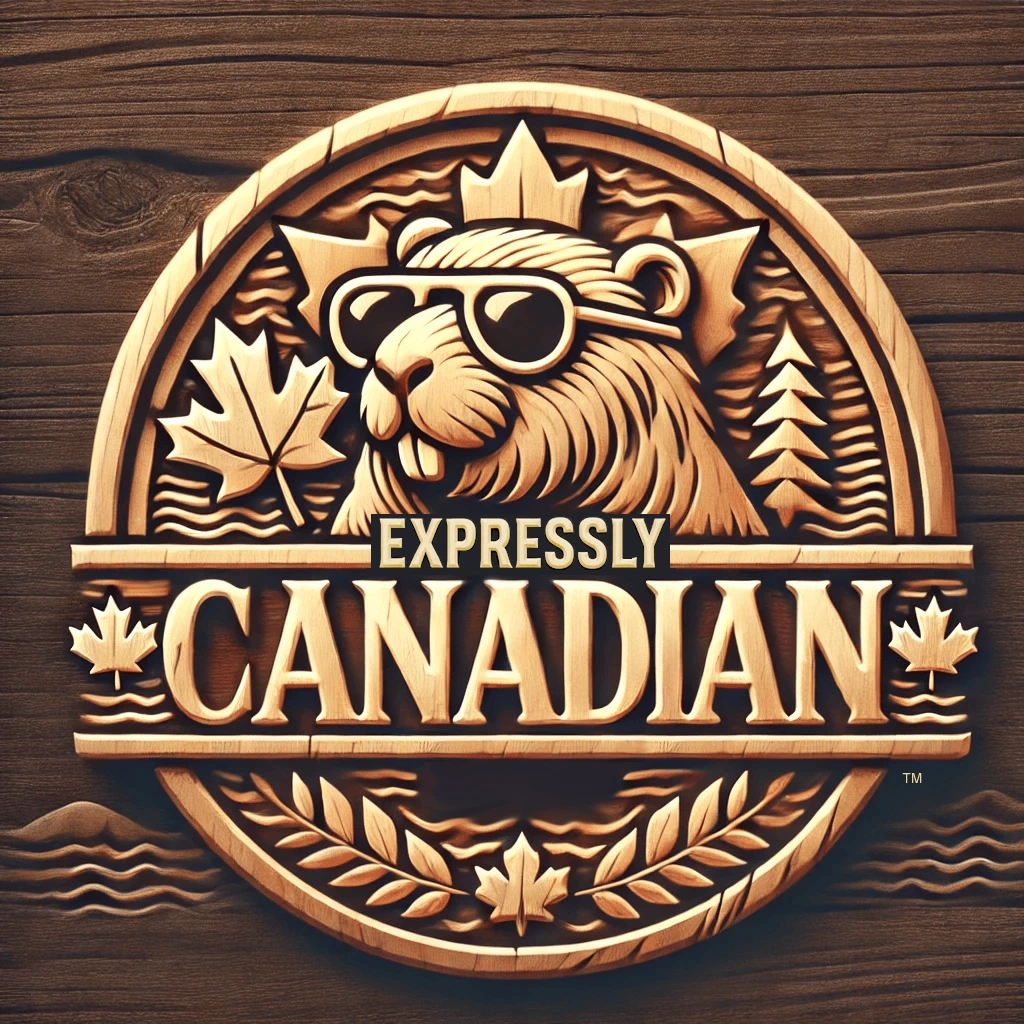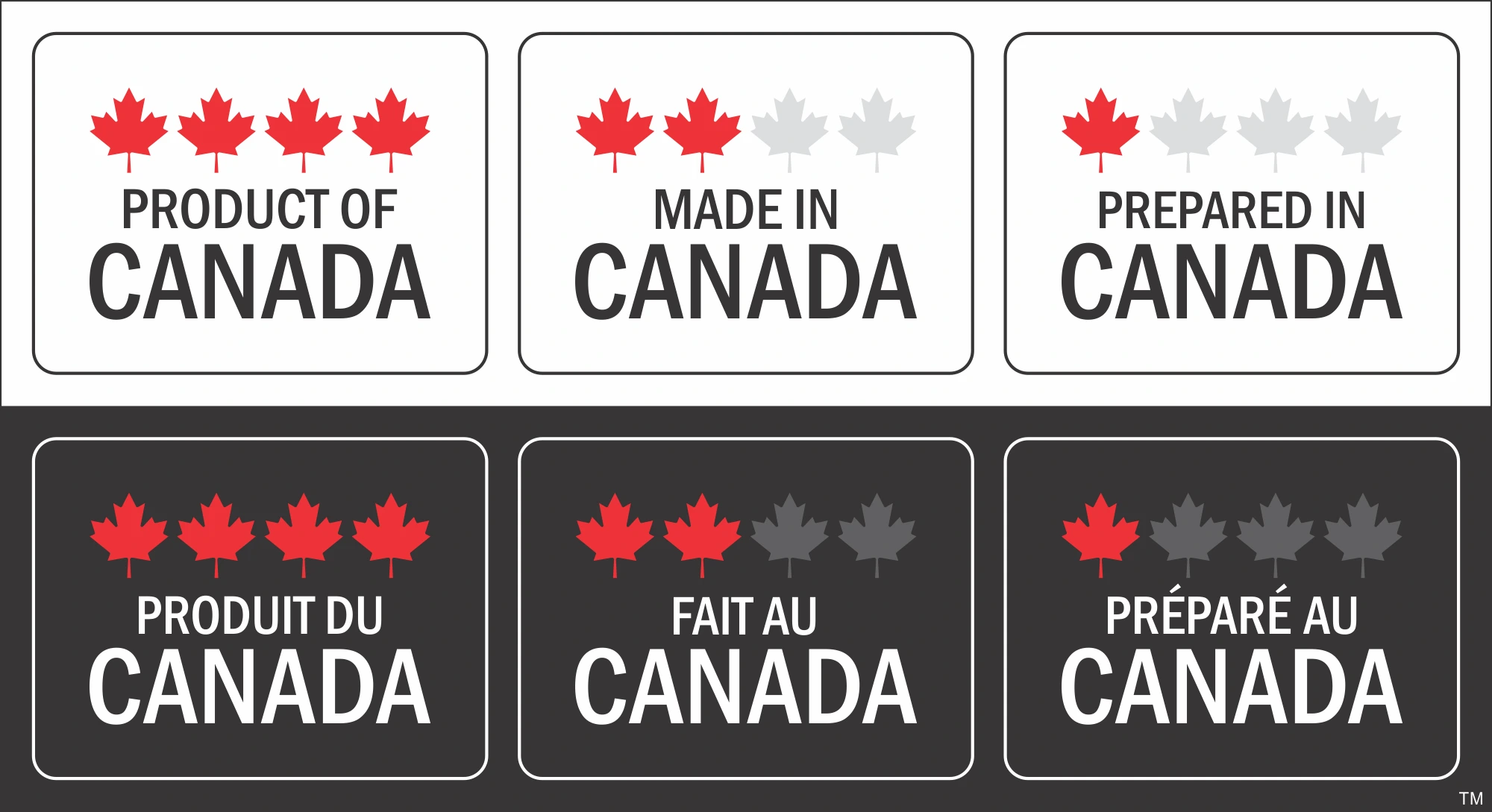
Expressly Canadian
Expressly CanadianTM is an initiative to propose changes to Canadian product labelling legislation. The goal is to make it easy for consumers to identity Canadian products so they can be better informed in their purchasing decisions.
In response to economic warfare and threats to sovereignty, Canadian consumers desire to purchase goods that benefit Canadian businesses and communities. It’s difficult, however, for shoppers to understand what it means for a product to be “Canadian” and to identify such products.
Problems with Current Labelling Practices
Consumers come across terms on product labels that include, “Made in Canada”, “Roasted in Canada”, “Prepared for [Canadian Retailer]”, “Canada Organic”, “Bottled in Canada”, and even “Designed in Canada”. The many different descriptions are confusing and it appears there are producers who “maple wash” products in the hope of making a sale.
Some retailers are also complicit with their shelf signage and advertising. One grocery chain recently placed bright red “Prepared in Canada” labels beside a whole range of products that don’t necessarily meet government criteria for “Made in Canada” food product labelling. Many of these products belong to the house brand owned by the grocer. The retailer isn’t breaking the law as there’s no regulation around using the phrase, “Prepared in Canada”, but the words can mean anything; and nothing. That’s not helpful for consumers wanting to support Canadian producers.
Current food product labelling rules come from the Canadian Food Inspection Agency (CFIA). labels may indicate “Product of Canada” if 98% of the direct costs of the last substantive transformation of the product was spent in Canada. “Made in Canada” indicates 51% of the cost was spent in Canada. Use of the terms is optional for products that meet the criteria. CIFA rules also allow for symbols, such as a maple leaf, to be displayed on food products that do not meet the above thresholds.
Consumers are confused by:
- “Made in Canada” implying 100% Canadian content when it is only 51%+
- labels implying substantial Canadian content when the product does not meet Made in Canada criteria
- Product of Canada or Made in Canada products that do not indicate such
- products described as “Prepared for” a Canadian grocer or brand, but have no Canadian content
- companies that suggest they are Canadian but sell products that are not
The Expressly Canadian Proposal

Expressly Canadian endorses a four-star system for labelling products using the above standardized logos. This allows Canadian products to be identified at a glance:
- Product of Canada – four red leaves
- Made in Canada – two or three red leaves
- Prepared in Canada – one red leaf
Product of Canada is the same as the existing CFIA “Product of Canada” category for food product labelling. That is, 98% of the direct costs of the last substantive transformation of the product must have been spent in Canada.
Made in Canada is the same as the existing CFIA “Made in Canada” category for food product labelling. In this case, 51% of the cost must have been spent in Canada. Additionally, a producer may display three leaves on the Made in Canada label if the product meets a 75% threshold.
Prepared in Canada indicates at least 25% Canadian content. It is a new umbrella category for existing unregulated terminology such as prepared in Canada, roasted in Canada, bottled in Canada, etc. It is intended to show some Canadian value in a product, but that the amount is small.
Use of these logos is optional; however if a producer wishes to indicate Canadian content in any way, one of the logos must be present on the product label. Products not meeting Expressly Canadian criteria may not use terminology or symbols that imply Canadian content.
Producers may, in addition to an above label, indicate an explanation; for example “Made in Canada from local and imported ingredients”. Products that meet Expressly Canadian criteria may also be identified by other programs such as “VQA”, “Foodland Ontario”, etc.
Prepared in Canada products incur an additional restriction. They may include only the Expressly Canadian logo and optional explanation. They may not use any other terminology or symbols that imply a Canadian product.
Retailers wishing to identify products as Canadian may use Expressly Canadian logos in their signage and advertising but are not required to do so. They must, however, adhere to the terminology rules. For example, a retailer may not post signage indicating “Made in Canada” on a shelf of products that do not meet at least the Made in Canada content requirement.
Expressly Canadian Principles
1. Clear
The logos utilize a straight forward four-star system for conveying Canadian content at a glance.
2. Compatible
Categories are backward compatible with existing CFIA Product of Canada and Made in Canada terms. Current use of phrases such as “prepared in Canada” and “bottled in Canada” is accommodated.
3. Comprehensive
The logos and terminology apply to food and non-food products as well as retail signage and advertising. The scope is national.
Download the white paper